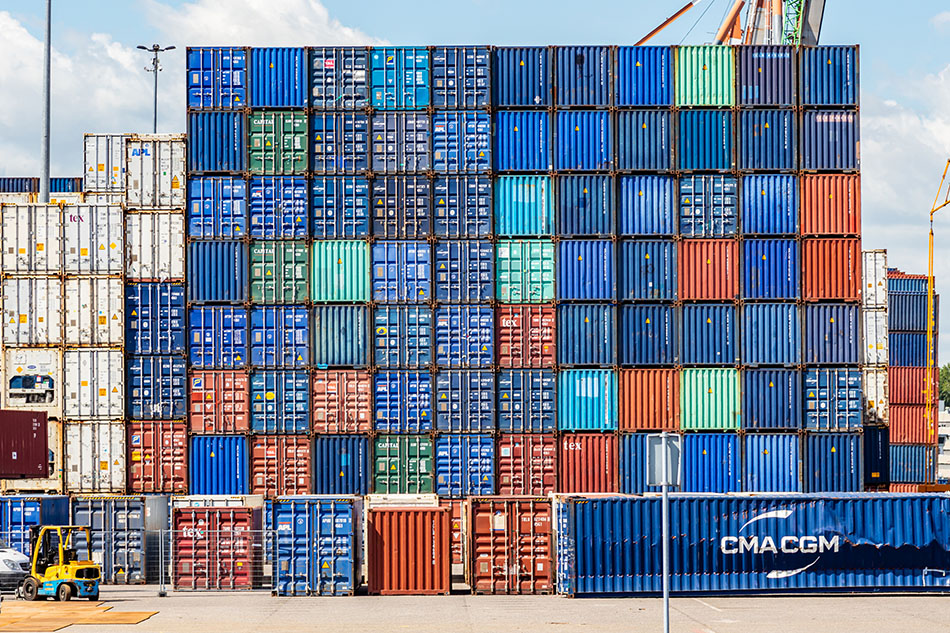
Regulatory changes could prevent the U.S. from exporting mixed plastics to a number of countries. | rawf8/Shutterstock
Federal regulators are asking countries that are major buyers of U.S. recyclables to refrain from implementing new trade restrictions laid out in the Basel Convention, a treaty covering global scrap material shipments.
U.S. EPA Administrator Andrew Wheeler on July 3 sent a letter to the Organisation for Economic Cooperation and Development (OECD), a consortium whose members are generally considered non-developing nations. In his letter, Wheeler references significant scrap plastics-related changes that were approved to the Basel Convention on the Control of Transboundary Movements of Hazardous Wastes and Their Disposal earlier this year.
The U.S. has a unique stake in asking that OECD countries not adopt the Basel changes. The U.S. is the only OECD member that is not a party to the Basel Convention.
Under the current terms of the Convention, OECD member countries can continue receiving shipments from non-Basel party countries. If the OECD adopts the Basel changes, however, that trade relationship could change, hampering scrap material shipments to other developed nations.
Changes came amid marine debris anxieties
The Basel changes, which were given the thumbs up during a meeting of world governments in May, were framed as a way to tackle the growing marine debris problem. Among other measures, the changes will impose restrictions on scrap plastic shipments, particularly targeting the trade of mixed plastics.
As far as how they affect the U.S., it could theoretically prevent the U.S. from exporting mixed plastics to any country that’s a party to the Basel Convention, except for OECD countries. The OECD includes Canada and Mexico as well as most European nations, South Korea and a handful of other countries.
Although their full impact on the recycling industry is unclear – the changes officially take hold Jan. 1, 2021 – experts anticipate even larger disruption to the industry than the export strife spurred by China’s import restrictions. Countries that are parties to the Basel Convention must adopt the Convention changes into their own national laws.
In a press release, the Basel Action Network (BAN), a watchdog group that generally opposes U.S. scrap exports, explained that under OECD policy, the OECD group would typically automatically adopt the changes into its own rules, which are applied to member countries. However, if an objection is submitted from a member country, the adoption process is put on hold, according to BAN.
The EPA’s letter serves as such an objection.
Managed in ‘environmentally sound manner’
Wheeler wrote that the OECD countries have “attained high environmental standards and have the capacity to manage waste in an environmentally sound manner,” with less than 1% of scrap plastic “mismanaged” among OECD members.
Subjecting OECD countries to the restrictive Basel changes “would impede trade for recycling and could reduce the level of recycling among OECD countries,” Wheeler wrote. “If trade becomes more difficult, we anticipate that more OECD-generated plastic scrap will be disposed in landfills, sent for incineration or used for fuel, which are less-preferred options on the waste-management hierarchy.”
Instead, Wheeler asks that scrap plastic be considered under a less-stringent guideline, the “Green” control procedure, which still requires that the material being shipped is destined for recycling operations but would avoid a handful of additional regulations set out in the new Basel changes. Using this guideline, Wheeler wrote, “will help ensure that the material can move to jurisdictions that can recycle it efficiently and in an environmentally sound manner.”
In a statement, the Institute of Scrap Recycling Industries (ISRI) described the EPA letter as “an important step in facilitating a proper discussion on how recycling works and is part of the solution toward keeping end of life materials – including plastics – out of the environment.”
“Restricting trade does not solve the true causes of pollution that result from poor waste management and careless human behavior,” said Adina Renee Adler, assistant vice president for international affairs for ISRI. “The OECD will be an important venue to direct the international community’s attention toward proper information about the value of end-of-life materials and how to ensure they are responsibly recycled.”
BAN, the nonprofit watchdog group, condemned Wheeler’s letter, stating that the Basel changes will improve recycling.
“Rather than requiring waste traders to first clean and separate plastic wastes or else get the importing country’s permission to receive it, the U.S. seeks a free-trade pathway to allow its waste brokers to dump dirty, unrecyclable wastes on other OECD countries such as Mexico, Canada, Turkey and South Korea with impunity,” said Jim Puckett, BAN’s executive director, in the group’s news release.
A version of this story appeared in Resource Recycling on July 16.
More stories about exports
- Malaysia’s import ban ‘very much up in the air’
- Some tariffs suspended, metal duties spur backlash
- Scrap plastic from Canada, Mexico subject to tariffs


